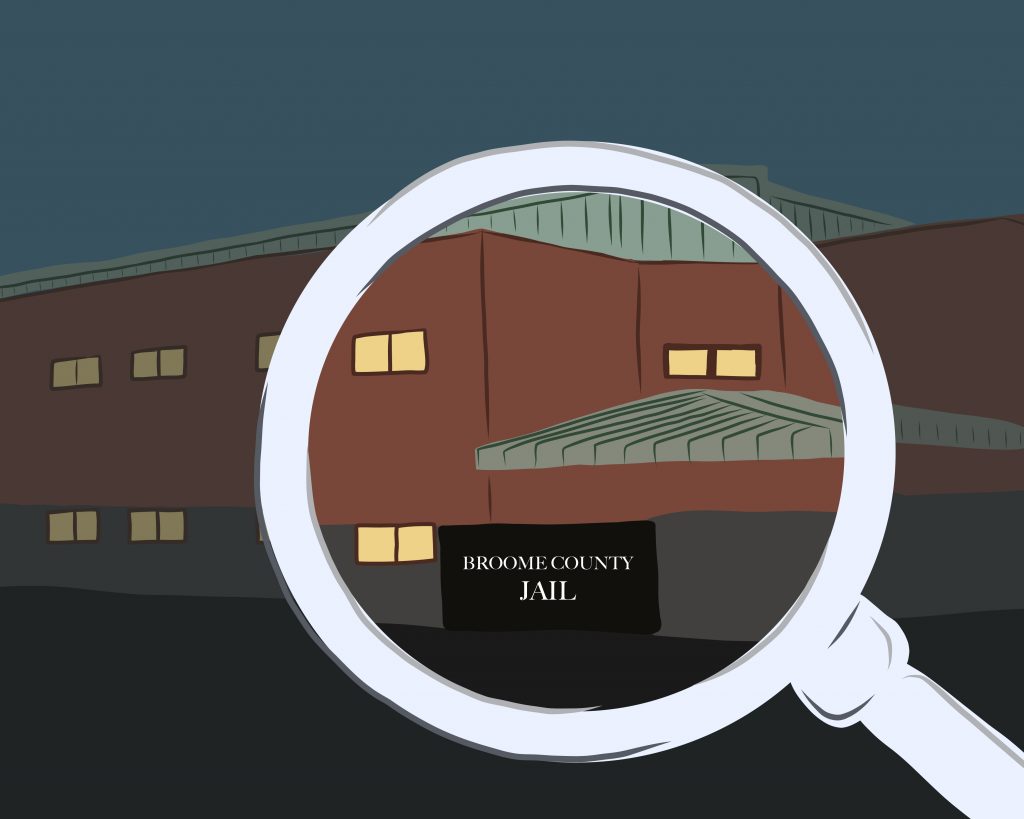Last week, a settlement was finally reached in Makyyla Holland’s lawsuit, which has the potential to aid in passing legislation to protect the rights of transgender people incarcerated across New York state. The lawsuit was filed last year on behalf of Holland, a transgender woman who experienced severe abuse when held in the Broome County Jail for six weeks in 2021. Holland explained that she was housed with grown men, denied access to needed medication, hygiene products and clothing given to incarcerated women, and beaten when she refused to strip naked in front of male guards.
Holland’s settlement is a much-needed and tremendous step forward for Broome County — and hopefully the state — in calling to attention and remedying some of the inhumane treatment suffered by transgender people in carceral facilities. However, we look to the sheriff and jail’s administration to act on their promises and be transparent about how transgender people are being treated inside.
Holland’s story sheds light on the disproportionate harm experienced by transgender people in carceral facilities across the United States. Transgender incarcerated individuals experience harassment and sexual abuse from other incarcerated people and staff at unequally high rates and are denied gender-affirming and medical care across the United States.
Housing transgender people according to their gender identity is one of the most crucial ways that carceral facilities can prevent uneven abuse and harm. Some federal and state guidelines exist that encourage transgender people to be housed based on their gender identities, but these standards are piecemeal and lack authority. The dire need for more comprehensive and strong policy is evidenced by the fact that in 2020, a shocking NBC News investigation revealed that out of the almost 5,000 transgender individuals in U.S. state prisons, only 15 had been housed according to their gender identities.
The Broome County Jail’s failure to provide basic resources and care for Holland was enabled by a lack of comprehensive federal and state legislation that protects incarcerated transgender people, as well as a lack of effective enforcement mechanisms. At the federal level, protections for transgender incarcerated people are piecemeal. In January of last year, the Bureau of Prisons reissued its Transgender Offender Manual, which included a requirement that prisons place transgender people in housing units on a “case by case” basis. However, conducting “case-by-case” evaluations is left up to local and state clinical facilities across the United States, which clearly allows for abuse of discretion. Additionally, these guidelines refer to federal prisons only, not jails, where there are only 1,300 people in custody, about 1/4 percent of the overall incarcerated population.
State legislation is also lacking, with only a minority of states, such as California, Massachusetts and New York passing laws that provide protections for incarcerated transgender people. In New York, Senate Bill S6677A, passed in 2021, requires incarcerated people in state and local correctional facilities to be “presumptively placed” with people “that most closely align” with their gender identity, as well as guarantee access to commissary items, clothing and “other materials” consistent with their gender identity. The vagueness of this language, but most concerningly, the lack of proper state enforcement mechanisms, unfortunately allow for a policy-practice gap. Additionally, Gov. Kathy Hochul announced in 2022 a new policy initiative that would allow transgender people to request to be housed based on their gender identity, as well as access to “gender-affirming medical and mental health care” and clothing consistent with their gender identity. Unfortunately, this policy is yet to be implemented, as it still awaits approval from state lawmakers.
While the increase in state legislation like this over recent years has been long needed, the insular and abusive nature of carceral facilities easily allows for abuse, as evidenced by Holland’s experience. Holland’s settlement mandates Broome County to change its policies to comply with federal and state laws regarding the treatment of transgender incarcerated people, including housing people consistent with their gender identity, ensuring that staff respect the gender identity of people inside and ensuring access to clothing, toiletry items, gender-affirming items and medical care free from discrimination.
It is concerning, although unfortunately not surprising, that Broome County has not already been complying with federal and state guidelines and providing even minimal treatment and care to transgender people. Holland was incarcerated while Sheriff Harder was still elected, who was notorious for his lack of transparency and complicity in mass abuse and neglect occurring in the Broome County Jail. Although there have been no drastic improvements made to the jail since Sheriff Akshar was elected this past November, his “Community FIRST” plan emphasized the need for increased transparency and accountability in the department.
We hope that, moving forward, Holland’s settlement won’t be an empty promise. In order to ensure that the Broome County Jail is treating transgender people with dignity and respect and ensuring their access to necessary items, the jail should be mandated to report on their compliance with the settlement every month or so, as well as allow for community members to become more involved in oversight for the jail. This could be accomplished through a community-independent oversight board that is given access to information regarding what is occurring inside the jail and works to come up with solutions to pressing issues. This settlement is a big step forward, and hopefully will set a precedent for progress in other counties and states, but it is meaningless without enforcement.



